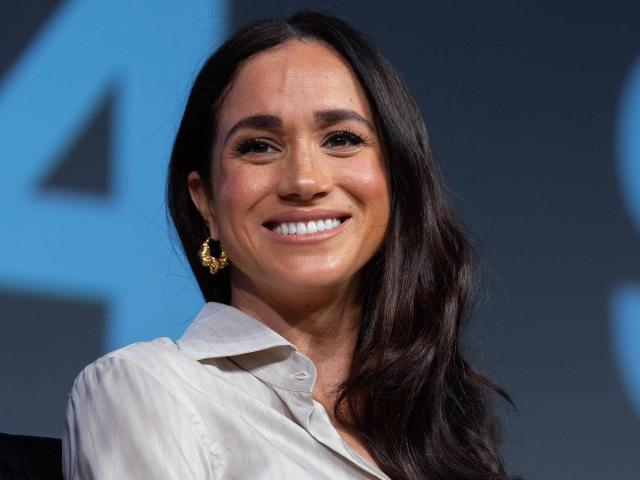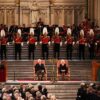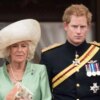The News
Harry and Meghan: Navigating the Fine Line Between Activism and Image
In recent times, Prince Harry and Meghan Markle have found themselves at the center of media scrutiny as they adapt to life in California, far removed from their royal duties.
The couple stepped away from the royal family in search of greater privacy and autonomy, yet they remain very much in the public eye.
Their actions, however, have not gone unnoticed, often drawing criticism for being perceived as self-serving or opportunistic.
One particular incident that ignited controversy was their response to the devastating wildfires that have plagued California.
Critics accused Harry and Meghan of exploiting this tragic situation for their own public relations benefit, raising serious questions about their intentions and the consequences of their actions.
The wildfires, which have become an annual crisis, have wreaked havoc on communities, destroying homes and displacing countless families.
During this tumultuous period, many public figures and organizations came forward to support those affected, providing aid and resources.
Naturally, the public hoped that any involvement from high-profile individuals would stem from genuine concern for those in distress.
However, when Harry and Meghan began to share statements and social media posts regarding the fires, opinions quickly became polarized.
While some viewed their outreach as a commendable effort to raise awareness and support for those suffering, others interpreted it as a calculated move to bolster their public image.
As the couple expressed their sympathy and highlighted the need for community support, critics began to voice their discontent.
Social media erupted with skepticism about the authenticity of their involvement, with many arguing that Harry and Meghan were using the tragedy to craft a narrative that painted them as compassionate figures.
This sentiment was further fueled by the couple's history of carefully staged public appearances and statements that often seemed to coincide with personal or professional crises.
The optics of their engagement raised eyebrows; while they spoke passionately about the wildfires and the urgent need for community support, their luxurious lifestyle and multimillion-dollar deals with streaming services felt at odds with the message they were trying to convey.
Critics pointed out this disconnect between their privileged existence and the harsh realities faced by those impacted by the fires.
This dissonance led many to question whether their involvement was genuinely altruistic or simply another chapter in a meticulously crafted PR strategy.
In the face of the backlash, representatives for the couple defended their actions, asserting that Harry and Meghan are genuinely invested in climate change and the challenges faced by affected communities.
They emphasized the couple's long-standing commitment to environmental issues and disaster relief, arguing that their platform allows them to shine a light on critical matters that often go unnoticed.
Yet, for many observers, these explanations did little to quell the perception of exploitation.
The intersection of celebrity culture and activism created a complex narrative that blurred the lines between true advocacy and self-promotion.
As the fires continued to rage, the couple's attempts to engage with the situation did not go unnoticed.
They shared resources, provided links to organizations aiding in disaster relief, and encouraged their followers to contribute.
While these actions were commendable, the timing and context of their messages sparked a broader conversation about the ethics of celebrity involvement in crises.
Many began to wonder if high-profile figures should take a step back during such tragedies, allowing the focus to remain on those directly impacted rather than on themselves.
The controversy surrounding Harry and Meghan's response to the California fires reflects a larger issue in today's social media-driven world, where the lines between advocacy and self-interest can easily blur.
As public figures leverage their platforms to address significant issues, the presence of celebrities in humanitarian efforts can amplify awareness and inspire action.
However, it also raises uncomfortable questions about authenticity and the motivations behind their involvement.
In the aftermath of the criticism, public sentiment has evolved into a nuanced understanding of celebrity culture, with many continuing to support the couple's philanthropic efforts while others remain skeptical of their intentions.
This ongoing dialogue highlights the complexities of celebrity activism, particularly in times of crisis.
As Harry and Meghan navigate their dual roles as public figures and advocates, they must contend with the scrutiny that accompanies their high-profile status.
The incident serves as a reminder of the delicate balance between leveraging one's platform for good and the potential pitfalls of public perception.
As they move forward, it may be crucial for the couple to consider how they can engage with pressing issues in a way that resonates authentically with their audience.
In an era where public opinion can shift rapidly, those in the spotlight face high stakes, especially when addressing matters of public concern.
The conversation surrounding Harry and Meghan's involvement in the California wildfires encourages us to think critically about the intersection of celebrity, activism, and social responsibility.
Ultimately, while the couple has the potential to create a positive impact, they must be mindful of how their actions are perceived and the narratives they construct along the way.
By aligning their public personas with their philanthropic endeavors, they can foster trust and respect from the very communities they aim to support.
As the wildfires continue to pose a significant threat, the importance of genuine support and proactive engagement remains paramount.







































































